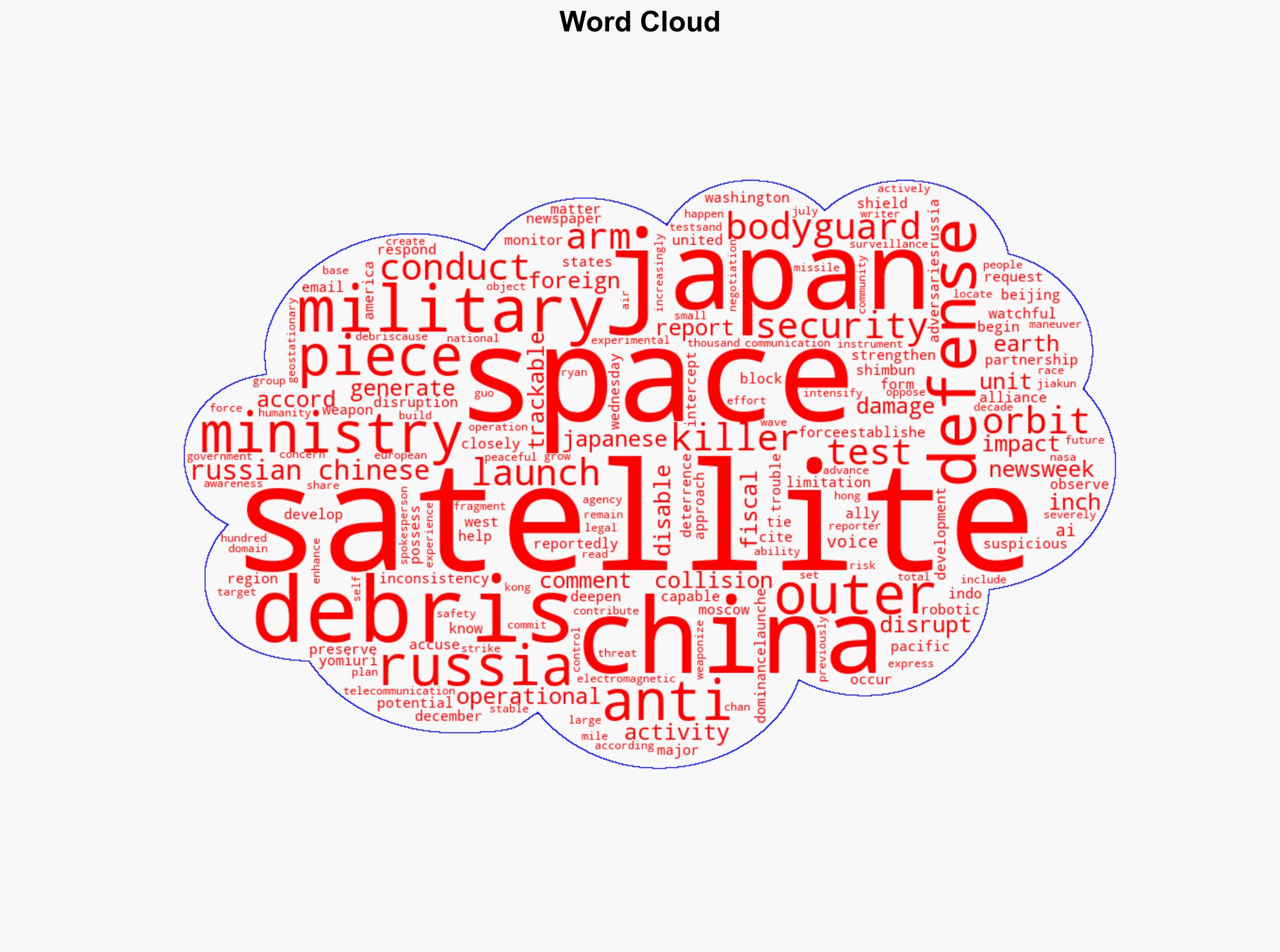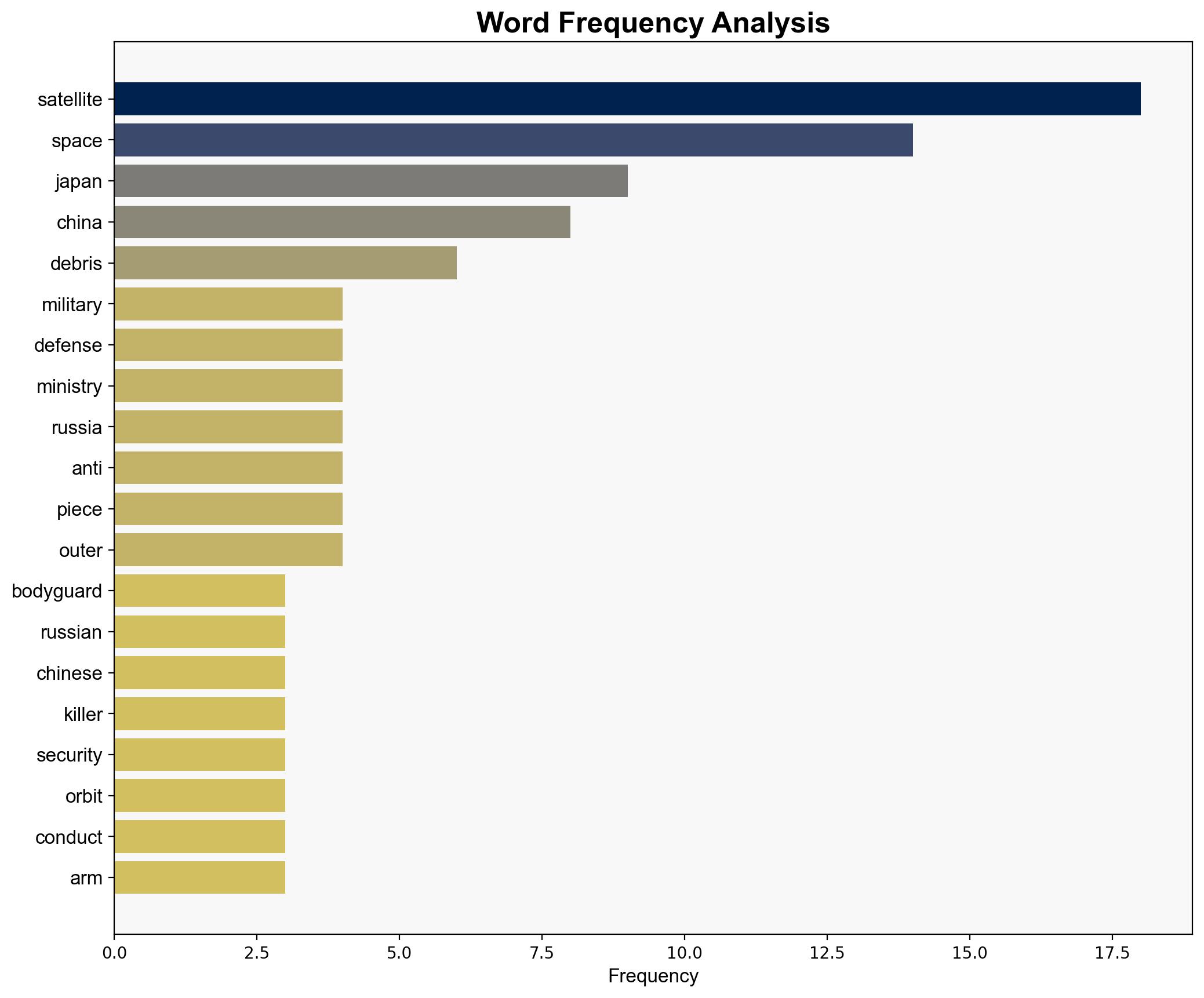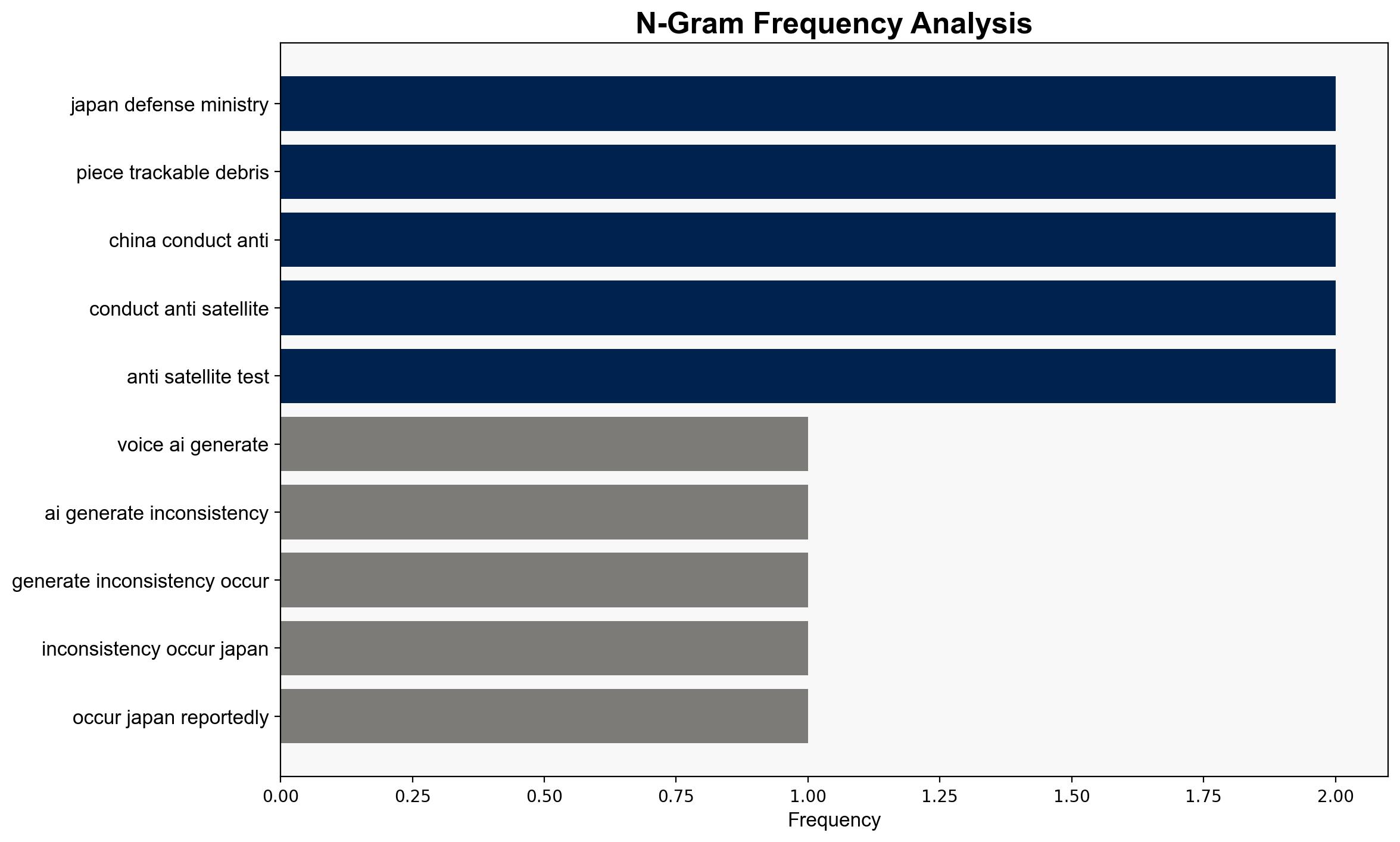US Ally Plans ‘Bodyguard’ Against Russia and China’s ‘Satellite Killers’ – Newsweek
Published on: 2025-09-05
Intelligence Report: US Ally Plans ‘Bodyguard’ Against Russia and China’s ‘Satellite Killers’ – Newsweek
1. BLUF (Bottom Line Up Front)
Japan’s development of a “bodyguard” satellite system to protect against potential threats from Russian and Chinese anti-satellite capabilities represents a strategic move to safeguard national security and maintain regional stability. The most supported hypothesis is that Japan is proactively enhancing its defense capabilities in response to perceived threats from Russia and China. Confidence level: Moderate. Recommended action: Strengthen international collaboration on space security and increase transparency in space activities to reduce tensions.
2. Competing Hypotheses
Hypothesis 1: Japan’s initiative is a direct response to credible intelligence indicating that Russia and China are actively developing and deploying anti-satellite weapons that threaten Japan’s national security and regional stability.
Hypothesis 2: Japan’s actions are primarily driven by a strategic desire to align more closely with the United States and demonstrate commitment to the Indo-Pacific security framework, rather than an immediate threat from Russia and China.
3. Key Assumptions and Red Flags
Assumptions:
– Hypothesis 1 assumes that Japan has access to credible intelligence on Russian and Chinese anti-satellite capabilities.
– Hypothesis 2 assumes that Japan’s primary motivation is geopolitical alignment rather than direct threat mitigation.
Red Flags:
– Lack of direct statements or evidence from Russia and China confirming the development of anti-satellite weapons.
– Potential bias in interpreting Japan’s actions as purely defensive without considering broader strategic objectives.
4. Implications and Strategic Risks
The development of anti-satellite capabilities by any nation increases the risk of space militarization and potential conflict escalation. Economic impacts could arise from disrupted satellite communications. Geopolitically, increased tensions between Japan and its neighbors could destabilize the Indo-Pacific region. Cybersecurity risks may also rise as nations seek to protect or disrupt satellite operations.
5. Recommendations and Outlook
- Encourage diplomatic dialogue between Japan, Russia, and China to address space security concerns and reduce the risk of misinterpretation or escalation.
- Promote international agreements on space arms control to prevent an arms race in outer space.
- Scenario Projections:
- Best Case: Increased transparency and cooperation lead to a reduction in space tensions.
- Worst Case: An arms race in space leads to heightened regional instability and potential conflict.
- Most Likely: Continued development of space defense capabilities with periodic diplomatic engagements to manage tensions.
6. Key Individuals and Entities
– Japan Defense Ministry
– China Foreign Ministry spokesperson Guo Jiakun
– Newsweek reporter Ryan Chan
7. Thematic Tags
national security threats, cybersecurity, counter-terrorism, regional focus




